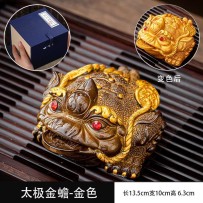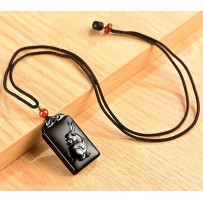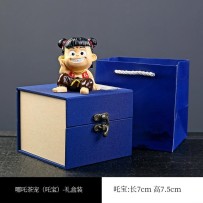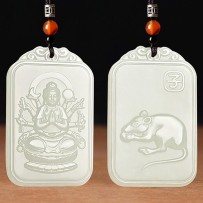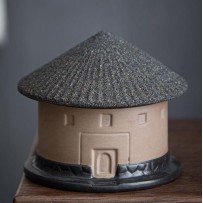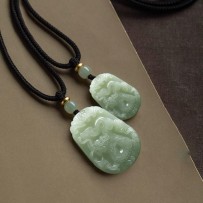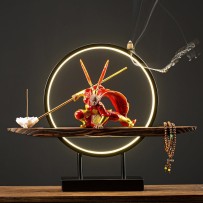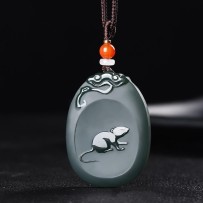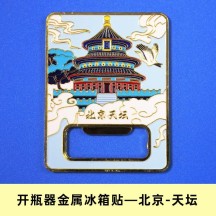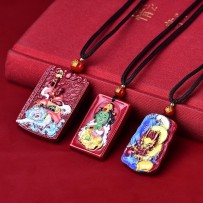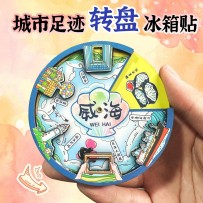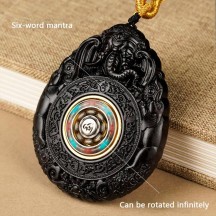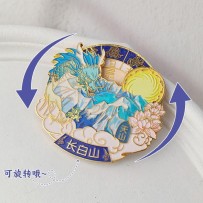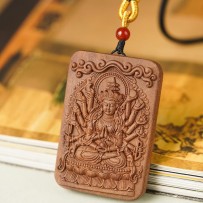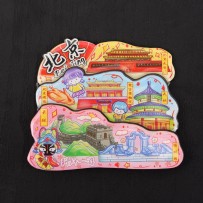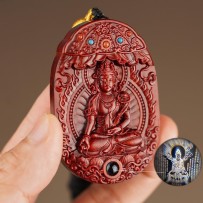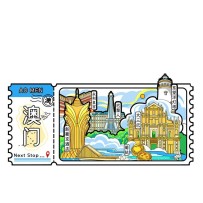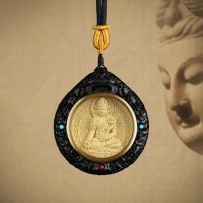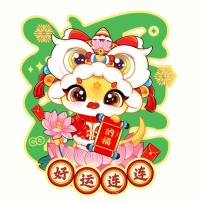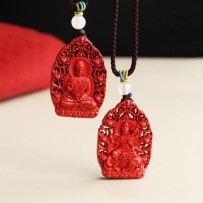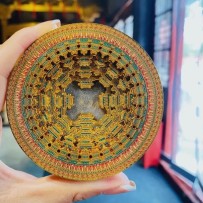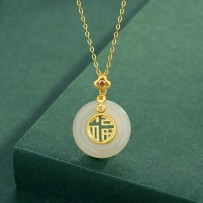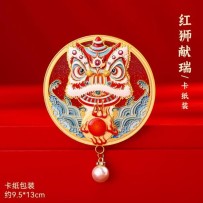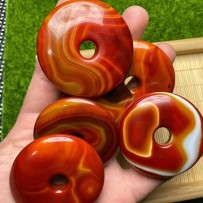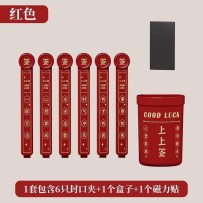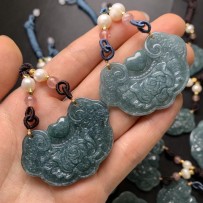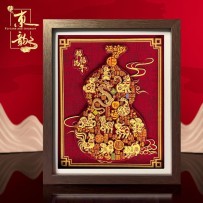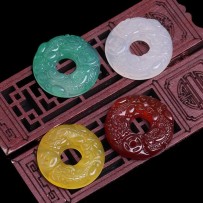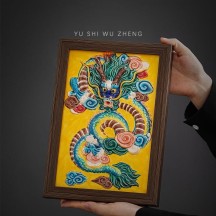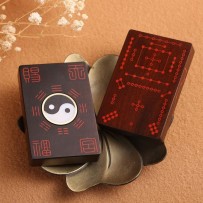Tea pets, also known as tea toys, are playful ornaments in Chinese tea culture designed to enhance the enjoyment of tea drinking.
Subcategories
Active filters
The twelve zodiac guardian gods, also known as the natal Buddha, the eight guardian gods, the twelve guardian deities, and the eight-body Buddha, are the twelve zodiac guardian gods of Japanese Esoteric Buddhism through the heavenly stems, earthly branches, the twelve causes and conditions, and the five elements.
Tea pets, also known as tea toys, are playful ornaments in Chinese tea culture designed to enhance the enjoyment of tea drinking
The zodiac natal Buddha means that each zodiac sign has its own natal Buddha, and different natal Buddhas have different meanings. According to Indian Buddhist tradition, everyone has a bodhisattva or Buddha protecting them from birth. The day they are born, they are connected with the Buddha with whom they are destined to be, and are called "natal Buddhas".
Tea Strainer: As the name suggests, a tea strainer serves the purpose of filtration. Though often overlooked, it plays a crucial role in the tea set. Its main function is to filter out tea leaves and fine particles from the tea liquor, ensuring a clear and bright brew. This not only enhances the visual appeal of the tea but also improves its taste.
The Chinese zodiac refers to the twelve animals that replace the twelve earthly branches and are used to indicate the time of birth of people, namely rat, ox, tiger, rabbit, dragon, snake, horse, goat, monkey, rooster, dog and pig. The Chinese zodiac is also commonly known as the "zodiac sign" - rat, ox, tiger, rabbit, dragon, snake, horse, goat, monkey, rooster, dog and pig. This is a unique way for Chinese people to indicate the time of birth, which is equivalent to the twelve zodiac signs in the West.
Tea pets, also known as tea toys, are playful ornaments in Chinese tea culture designed to enhance the enjoyment of tea drinking.
The Chinese zodiac refers to the twelve animals that replace the twelve earthly branches and are used to indicate the time of birth of people, namely rat, ox, tiger, rabbit, dragon, snake, horse, goat, monkey, rooster, dog and pig. The Chinese zodiac is also commonly known as the "zodiac sign" - rat, ox, tiger, rabbit, dragon, snake, horse, goat, monkey, rooster, dog and pig. This is a unique way for Chinese people to indicate the time of birth, which is equivalent to the twelve zodiac signs in the West.
Travel fridge magnets carry a wide range of meanings. They are not only souvenirs from a journey but also vessels of memories and emotions tied to travel, as well as symbols of one’s longing for different cultures and places.
Tangka refers to a unique scroll painting in Tibetan Buddhism, which mainly contains the biography of Buddha, various Buddha images, religious history, and images of various patriarchs. Most of them are painted on cloth, silk or paper, and then mounted with colored satin. It is a necessary item for Buddhists to worship and practice at any time.
Travel fridge magnets carry a wide range of meanings. They are not only souvenirs from a journey but also vessels of memories and emotions tied to travel, as well as symbols of one’s longing for different cultures and places.
The idea of the guardian deity of the zodiac is that according to the ten heavenly stems and twelve earthly branches, the causal relationships of the 12 zodiac signs, and the mutual generation of the five elements of "earth, water, fire, wind, and space", the 12 zodiac signs are blessed by eight Buddhas and Bodhisattvas.
It is figuratively called the "birth Buddha", which is the guardian deity of the zodiac.
Buddha and Bodhisattva not only have a heart of compassion to save the world, but also a heart of enlightenment and awakening to others, protecting all living beings.
Fridge magnets are small yet delightful cultural and creative products. They serve not only as decorative items but also as carriers of travel memories, expressions of emotion, and even conveyors of cultural messages.
The idea of the guardian deity of the zodiac is that according to the ten heavenly stems and twelve earthly branches, the causal relationships of the 12 zodiac signs, and the mutual generation of the five elements of "earth, water, fire, wind, and space", the 12 zodiac signs are blessed by eight Buddhas and Bodhisattvas.
It is figuratively called the "birth Buddha", which is the guardian deity of the zodiac.
Buddha and Bodhisattva not only have a heart of compassion to save the world, but also a heart of enlightenment and awakening to others, protecting all living beings.
Fridge magnets are small yet delightful cultural and creative products. They serve not only as decorative items but also as carriers of travel memories, expressions of emotion, and even conveyors of cultural messages.
The idea of the guardian deity of the zodiac is that according to the ten heavenly stems and twelve earthly branches, the causal relationships of the 12 zodiac signs, and the mutual generation of the five elements of "earth, water, fire, wind, and space", the 12 zodiac signs are blessed by eight Buddhas and Bodhisattvas.
It is figuratively called the "birth Buddha", which is the guardian deity of the zodiac.
Buddha and Bodhisattva not only have a heart of compassion to save the world, but also a heart of enlightenment and awakening to others, protecting all living beings.
Fridge magnets are small yet delightful cultural and creative products. They serve not only as decorative items but also as carriers of travel memories, expressions of emotion, and even conveyors of cultural messages.
The idea of the guardian deity of the zodiac is that according to the ten heavenly stems and twelve earthly branches, the causal relationships of the 12 zodiac signs, and the mutual generation of the five elements of "earth, water, fire, wind, and space", the 12 zodiac signs are blessed by eight Buddhas and Bodhisattvas.
It is figuratively called the "birth Buddha", which is the guardian deity of the zodiac.
Buddha and Bodhisattva not only have a heart of compassion to save the world, but also a heart of enlightenment and awakening to others, protecting all living beings.
Fridge magnets are small yet delightful cultural and creative products. They serve not only as decorative items but also as carriers of travel memories, expressions of emotion, and even conveyors of cultural messages.
The idea of the guardian deity of the zodiac is that according to the ten heavenly stems and twelve earthly branches, the causal relationships of the 12 zodiac signs, and the mutual generation of the five elements of "earth, water, fire, wind, and space", the 12 zodiac signs are blessed by eight Buddhas and Bodhisattvas.
It is figuratively called the "birth Buddha", which is the guardian deity of the zodiac.
Buddha and Bodhisattva not only have a heart of compassion to save the world, but also a heart of enlightenment and awakening to others, protecting all living beings.
Fridge magnets are small yet delightful cultural and creative products. They serve not only as decorative items but also as carriers of travel memories, expressions of emotion, and even conveyors of cultural messages.
Ping An Kou is a traditional Chinese jade ornament. It is round and flexible in appearance, which conforms to the "doctrine of the mean" in traditional Chinese culture. In ancient times, it was called "Bi" and has the effect of nourishing the body. In modern times, it is often given to lovers, relatives, and friends as a gift to wish for peace.
Fridge magnets are small yet delightful cultural and creative products. They serve not only as decorative items but also as carriers of travel memories, expressions of emotion, and even conveyors of cultural messages.
Ping An Kou is a traditional Chinese jade ornament. It is round and flexible in appearance, which conforms to the "doctrine of the mean" in traditional Chinese culture. In ancient times, it was called "Bi" and has the effect of nourishing the body. In modern times, it is often given to lovers, relatives, and friends as a gift to wish for peace.
The meaning of a "fortune slip" refers to the act of drawing a message to predict the future or seek insight into good or bad fortune—essentially a form of divination. It is often seen as a symbol of hope, offering spiritual comfort in times of difficulty, and can also serve as a way to relax and lighten one’s mood.
The patterns on jade pendants are extremely delicate and varied, and through the patterns, we can understand the rich cultural connotations, production techniques, and social and economic environment of the time.
This product is inspired by the "gourd," which serves as the central design element. Combined with meaningful text, it incorporates characteristics and customs of traditional Chinese festivals to create a joyful and harmonious festive atmosphere. The overall design features a golden color scheme, symbolizing prosperity and good fortune. It creatively integrates hollowed three-dimensional imagery with traditional paper-cutting, a form of intangible cultural heritage, resulting in a unique and artistic decorative piece.
Ping An Kou is a traditional Chinese jade ornament. It is round and flexible in appearance, which conforms to the "doctrine of the mean" in traditional Chinese culture. In ancient times, it was called "Bi" and has the effect of nourishing the body. In modern times, it is often given to lovers, relatives, and friends as a gift to wish for peace.
Among the Four Divine Beasts, the Azure Dragon holds significant symbolic meaning and cultural value. It represents power and authority, protection and blessings, morality and wisdom, as well as cultural heritage and a sense of national pride.
The Hetu and Luoshu are two mysterious patterns handed down from ancient China. They contain profound principles of the universe and astrology and are known as the "Magic Cube of the Universe". They are the source of Chinese culture, Yin-Yang and the Five Elements. The phrase comes from the Book of Changes, "The Hetu and the Luoshu". He refers to the Yellow River. Luo refers to the Luo River.










